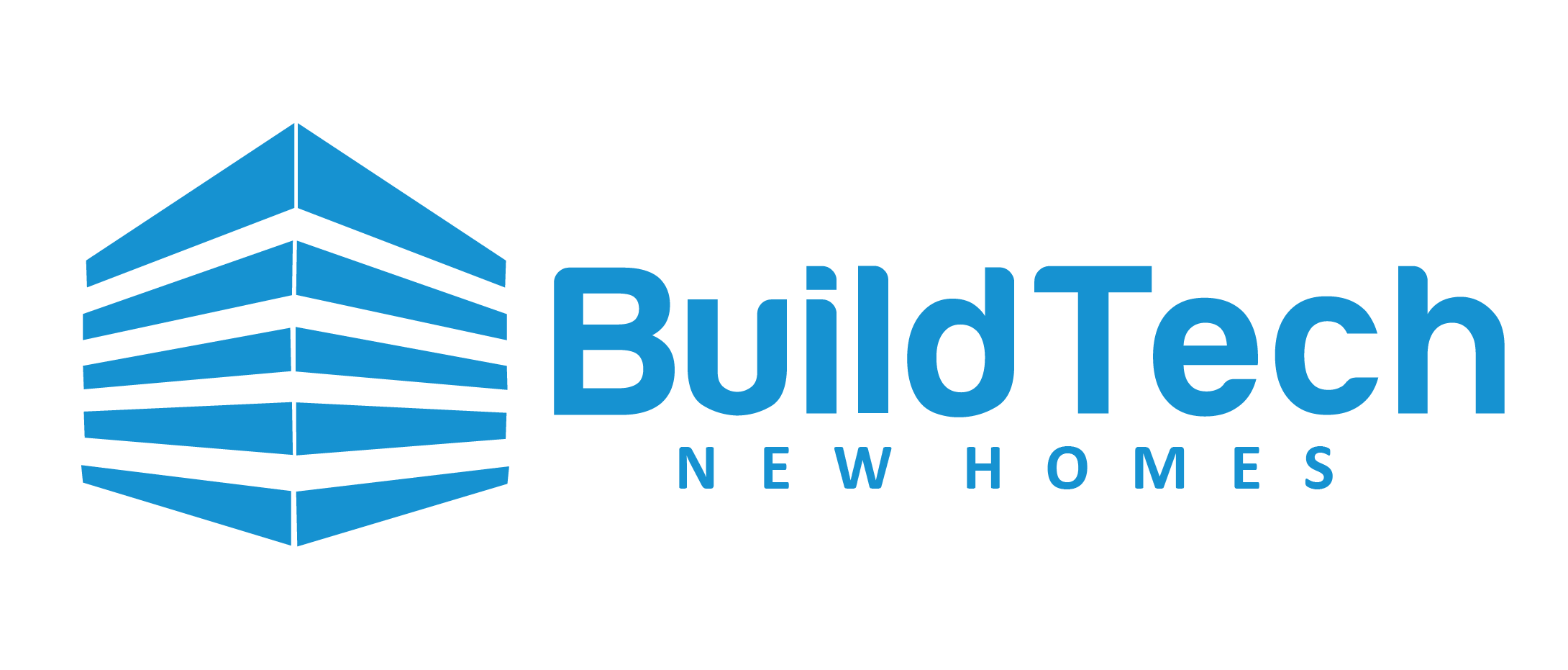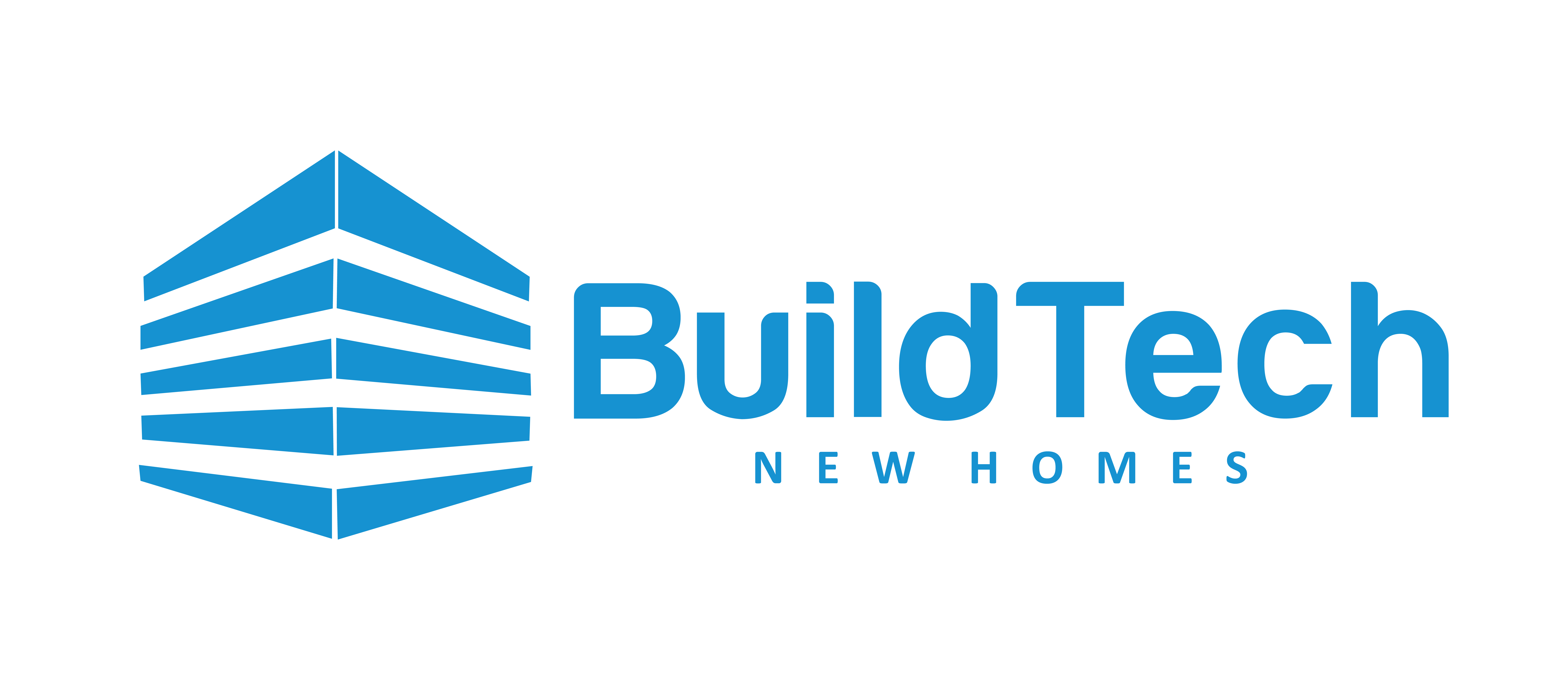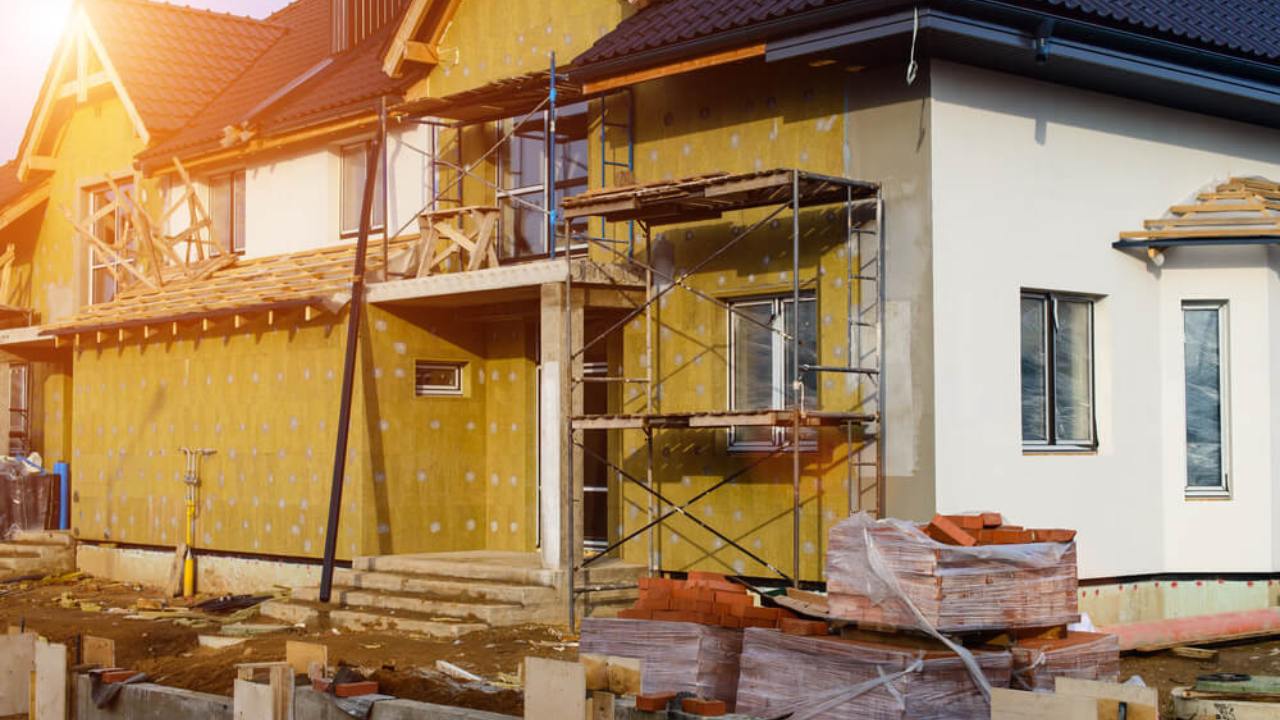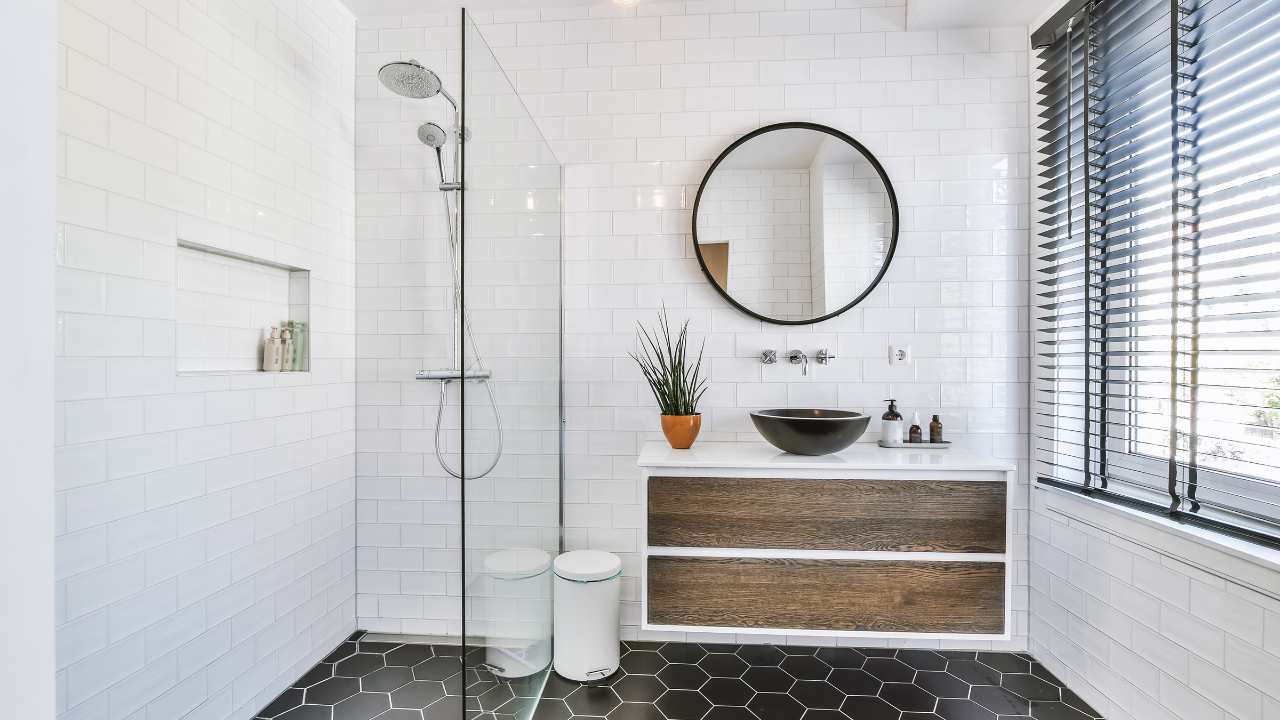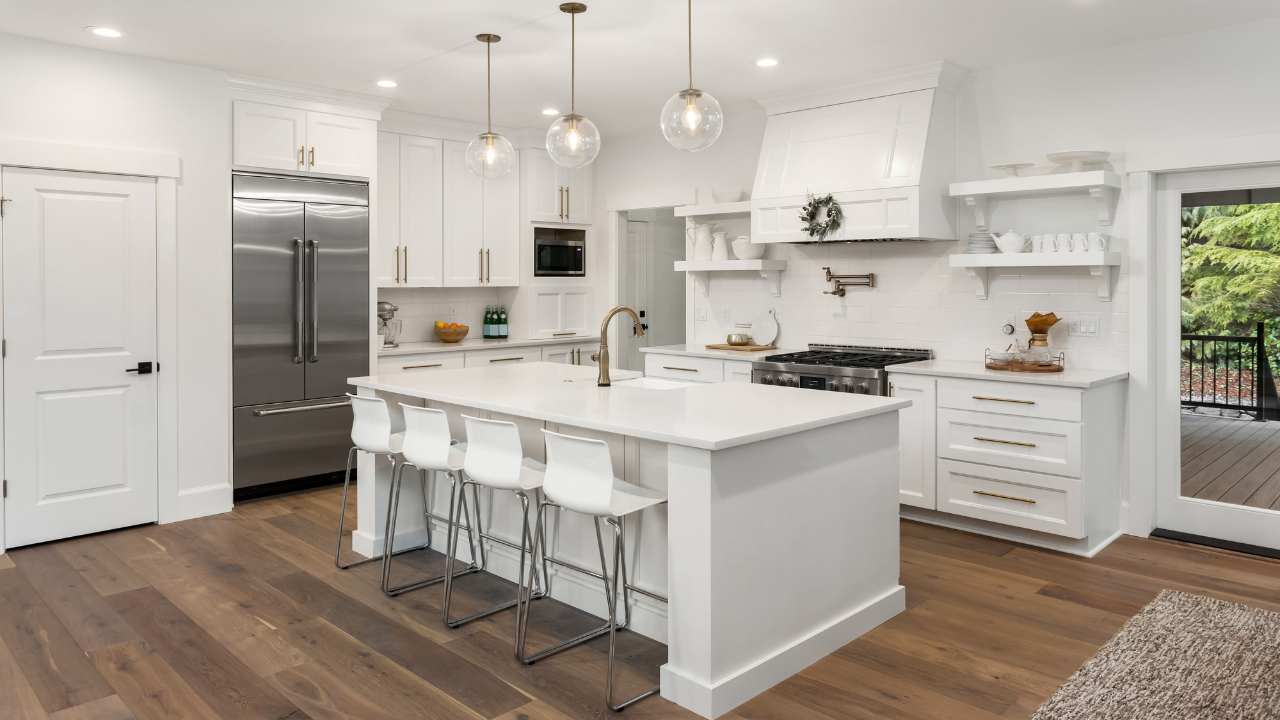Choosing the right building materials for Ireland’s climate is essential to creating durable, comfortable, and energy-efficient homes. With frequent rain, high humidity, and strong coastal winds, Irish weather can be tough on buildings, making moisture resistance, insulation, and durability top priorities.
By carefully selecting materials that stand up to these unique conditions, homeowners and builders can prevent issues like rot, mould, and heat loss, which can increase maintenance costs and reduce comfort.
In this guide, we’ll explore how to choose the right building materials for Ireland’s unique climate, from moisture-resistant timber to insulating concrete forms, and offer tips on achieving sustainable, long-lasting results for your building projects.
5 Top Building Materials for Ireland’s Climate
Choosing materials suited to Ireland’s weather is essential for long-lasting, comfortable homes. Let’s explore some of the best options that stand up to moisture, wind, and mild temperature changes.
Durable and Weather-Resistant Brick
Brick is an excellent option for Irish homes due to its natural moisture resistance and insulation capabilities.
Its solid structure not only withstands Ireland’s frequent rain and dampness but also helps retain warmth indoors, creating a cosy, energy-efficient environment.
Reliable Concrete for Foundations and Walls
Concrete is favoured for its strength and versatility, making it ideal for foundations, walls, and floors. It offers reliable support against wind and rain while needing little maintenance over the years.
Concrete’s durability ensures a stable, weather-resistant foundation for any building in Ireland.
Moisture-Resistant Pressure-Treated Timber
For outdoor areas such as decking and fencing, pressure-treated timber is a great choice.
This timber is specially treated to resist rot and decay from damp conditions, making it perfect for Ireland’s wet climate. It brings a natural look to outdoor spaces while remaining durable.
Energy-Efficient uPVC Windows and Doors
uPVC windows and doors are popular for their insulation and resistance to moisture. They don’t warp or shrink in changing temperatures, making them ideal for maintaining warmth and preventing drafts.
This material is easy to maintain and helps keep homes energy-efficient and dry.
Long-Lasting Natural Stone (Granite and Slate)
Natural stone, like granite and slate, is extremely durable and moisture-resistant, making it a great option for outdoor surfaces.
It withstands rain and wind without frequent upkeep and adds an attractive finish to both modern and traditional homes. Natural stone provides strength and style that last for years.
Exploring Ireland’s Climate and Its Impact on Building Materials
Ireland’s climate is defined by moderate temperatures, with winters that are rarely freezing and summers that stay relatively cool. However, buildings here face continuous challenges from frequent rain, high humidity, and strong winds.
Let’s look closer at the key climate factors that affect material choices for Irish homes.
Rain and Humidity
With regular rainfall year-round, Irish buildings are exposed to moisture almost constantly. High humidity levels make it difficult for materials to dry out, leading to issues like dampness and mould if the wrong materials are used.
Walls, roofs, and foundations must be built with moisture-resistant materials to ensure they hold up against these wet conditions.
Wind Exposure
Ireland’s coastal regions experience strong winds, which can test the durability of a building’s structure and materials. Coastal winds add stress to walls, roofs, and even windows, making it essential to select materials that can withstand these conditions.
Buildings in exposed areas need extra reinforcement to handle the consistent wind impact, helping to prevent damage over time.
Temperature Fluctuations
While Ireland doesn’t see extreme temperatures, even mild shifts from cool summers to slightly warmer winters can affect certain building materials. Over time, these small fluctuations can lead to expansion and contraction in materials, especially if they aren’t properly insulated.
This climate consistency means it’s crucial to select materials that can adapt to these subtle changes without cracking or weakening.
Key Considerations When Choosing Building Materials for Irish Weather
When building in Ireland, certain factors are essential for creating a lasting, comfortable home. These points help guide your choice of materials, so your home can stand up to Ireland’s weather and stay energy-efficient.
Moisture Resistance
With Ireland’s frequent rain, it’s crucial to choose materials that can handle moisture.
Pressure-treated timber and natural stone, like granite, resist water well and help prevent problems like rot and decay. These materials keep the structure safe and sound, reducing issues caused by dampness.
Insulation
Proper insulation is key to keeping your home warm without high energy bills.
Materials like double-glazed windows and insulated concrete help keep heat inside, which makes a home more comfortable and reduces heating costs. Effective insulation can make a big difference, especially during colder months.
Wind Resistance
Ireland’s coastal winds can be strong, especially in certain areas. Building materials that withstand these winds, like sturdy roofing and secure wall finishes, keep your home safe from damage over time.
These choices add extra stability, especially in windy weather, helping the home last longer.
Durability
Choosing durable materials means less work and worry down the line. Options like brick, concrete, and metal roofing last longer and need less upkeep.
These materials help your home stay strong and keep looking great for years, even with the challenges of Irish weather.
Sustainability
Using sustainable materials is a smart choice for both the environment and your home. Materials like locally sourced timber or recycled metal help reduce the impact on nature.
Choosing these eco-friendly options lets you build responsibly while creating a comfortable, efficient space.
Keeping Out Cold Air
To keep your home cosy and energy-efficient, it’s important to stop cold air from coming in. Special sealing materials, like membranes and tapes, keep warmth inside and dampness out.
This keeps your home warm, lowers heating costs, and reduces the risk of moisture issues over time.
Conclusion
Selecting the right building materials for Ireland’s unique climate is essential for creating durable, comfortable, and energy-efficient homes. From moisture-resistant brick and concrete to energy-saving uPVC windows, each choice can significantly impact a building’s resilience against Ireland’s wet, windy, and mild weather. By using materials suited to the climate, homeowners can reduce maintenance, save on energy, and enjoy a lasting structure.
Need expert guidance in choosing the perfect materials for your project? Contact BuildTech Homes today for personalised advise and professional assistance in building homes that stand the test of Ireland’s climate.
FAQs
What are the best building materials for Ireland’s wet climate?
Moisture-resistant materials like brick, concrete, and pressure-treated timber work best in Ireland’s damp climate. These materials help prevent rot and dampness, ensuring a longer-lasting structure.
How does Ireland’s climate affect building material choices?
Ireland’s frequent rain, humidity, and coastal winds demand materials that resist moisture, withstand strong winds, and offer insulation. Without suitable materials, buildings can face mould, decay, and structural issues.
Which roofing materials are ideal for Ireland’s weather?
Durable roofing materials such as slate and metal are excellent for Ireland, as they resist heavy rain and high winds. Membranes and insulation layers also help protect against moisture intrusion.
How can I improve insulation in Irish homes?
Materials like insulated concrete forms (ICFs) and double-glazed windows improve insulation, keeping homes warm and reducing heating costs. Good insulation prevents heat loss, especially in Ireland’s mild, humid climate.
Are sustainable materials suitable for Ireland’s climate?
Yes, sustainable options like recycled metal, locally sourced timber, and eco-friendly insulation perform well in Ireland. These materials are durable and help reduce the environmental impact of construction.
What type of windows work best for Ireland’s climate?
uPVC windows are a popular choice due to their moisture resistance and insulation properties. They help keep Irish homes energy-efficient, reducing drafts and preventing moisture buildup.
